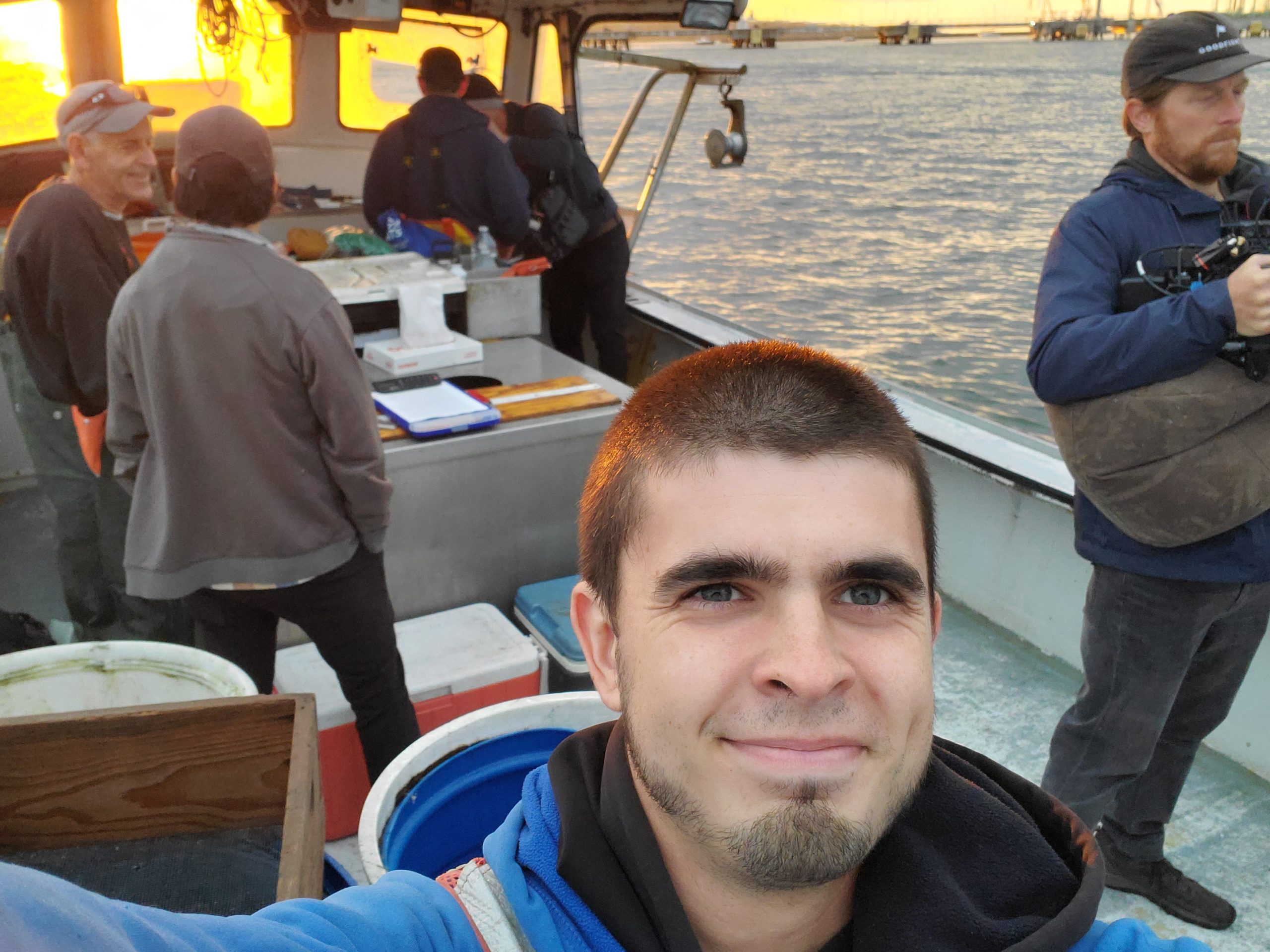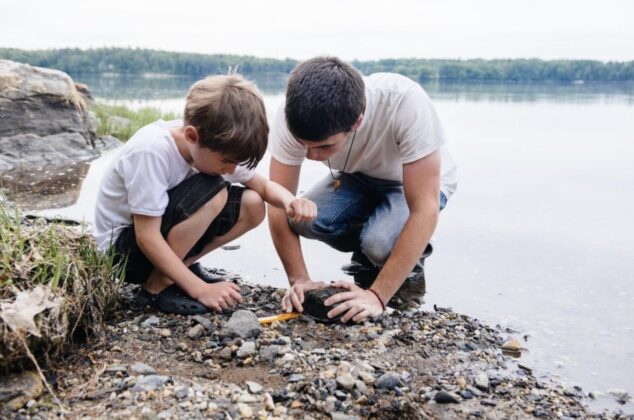
Dr. Andrew Goode: A Journey from Lobstering to Leading Marine Research
It’s hard to tell when I first fell in love with the ocean, it’s been part of my life for as long as I can remember.
I was raised, and currently live, in Boothbay, ME, a community where hard work is the expectation. I started working at the age of nine, helping my father with his landscaping business, but even then, we were working near the water. During my father’s free time he would take me in his skiff to haul his five recreational lobster traps by hand. It didn’t take me long to want to join in. I was drawn to being on the water and hauling lobster traps. My father enrolled me into the student lobster program at the age of twelve, and it was my turn to haul my own traps by hand.
A few years after starting the student lobster program I made a decision that changed my life forever, I wanted to become a marine biologist. I dedicated myself to school, and during the summer I could be found either landscaping or on my boat hauling my traps (thankfully no longer by hand). In my mid-teens my brother joined me out on the water, and he taught me everything he could that he learned from working on the water his whole life. By seventeen I was finally able to purchase my full commercial lobster license, and I’ve kept it ever since.
My hard work was paying off. I graduated from Boothbay Region High School in the top ten of my class, I was accepted to the Marine Science program at the University of Maine, and I was continuing to lobster during the summer. I immersed myself in any research opportunities I could get my hands on. By the end of my sophomore year, I landed my first internship at the Darling Marine Center working under Dr. Rick Wahle. The following summer I competed with over one hundred applicants for one of twelve internship positions at Bigelow Laboratory for Ocean Sciences, and I was accepted to work under Dr(s). Joaquin Martinez and David Fields. I was one of the few interns that was chosen to present their research at an international conference, and I was even offered the opportunity to present my research at Harvard. The next few years were filled with independent research at the University of Maine, working in several labs to gain as much experience as I could. My hard work gained the attention of several senior scientists in the School of Marine Science, but one took a particular interest in me, Dr. Damian Brady. During the summer of 2015 I held two internship positions, one at Bigelow to finalize my research and the other in the Brady lab. Little did I know this would be the start of something huge.
As my time as an undergraduate was winding down, I was wondering what I was going to do next. I began taking graduate courses during my senior year as an undergraduate, and I graduated Summa Cum Laude and top ten in my class in the School of Marine Sciences. I continued to work In the Brady lab over the summer while also lobstering, and I ended up taking the next semester off. But it ended up not being a semester off. Dr. Brady recruited me as an independent scientist to continue some research on lobster ecology with Dr(s). Rick Wahle and Bob Steneck. At the time I viewed it as a fun side project, but it soon evolved into something else. Towards the end of 2016 Dr. Brady came to me with a proposal, he wanted me to be his Ph.D. student, and to continue the research we started as part of my dissertation. I was hesitant to accept the position since I had not completed a Master’s program, but I trusted him and his judgment. In January 2017 I started my Ph.D. at the University of Maine, focusing on the lobster fishery and the impacts of climate change in the Gulf of Maine.
On top of taking classes and continuing my research in Graduate School, I became the teaching assistant for Dr(s). Emmanuel Boss and Lee Karp-Boss for a core undergraduate course and for Dr. Sarah Kingston during the Darling Cener’s Semester by the Sea program. My son was born in 2017, he decided to come six weeks early, and he had to stay in the NICU. I went to my classes during the day and visited my son in the hospital at night until he was cleared to come home. I balanced my education, research, and being a new father simultaneously. I even brought my son with me to class or while I was teaching. I published my first research article in 2019 and was assisting in writing grant proposals. I wrote a grant proposal towards the end of my degree, and by the time I graduated with my Ph.D. in Oceanography I had secured the funding for my postdoctoral research.
As a postdoctoral researcher I have expanded my involvement in the research community throughout Maine and beyond. I have collaborated in multidisciplinary and international teams, worked as an independent contractor for state and private agencies, and became a member of the Maine Climate Council’s Scientific and Technical Subcommittee. Following the retirement of one of my mentors, Dr. Rick Wahle, I became the lead administrative scientist for the American Lobster Settlement Index, and took the lead of a science-industry collaborative research program with Ready Seafood that monitors the settlement of post larval lobsters to the seabed.
My career focuses on how climate change impacts the multiple life stages of lobster, and how we can use these patterns to predict how this resource, and those dependent on that resource, will respond in the future. I want to preserve coastal communities and our way of life for future generations. I want to be a voice for my community, and I hope to do so using the skills that I was taught on and off the water. The ocean isn’t just a hobby or a job, it’s a place where I grew up, spent time with my family, and became part of a community. It’s magical to me, and through my work I hope to share that with as many people as possible.

